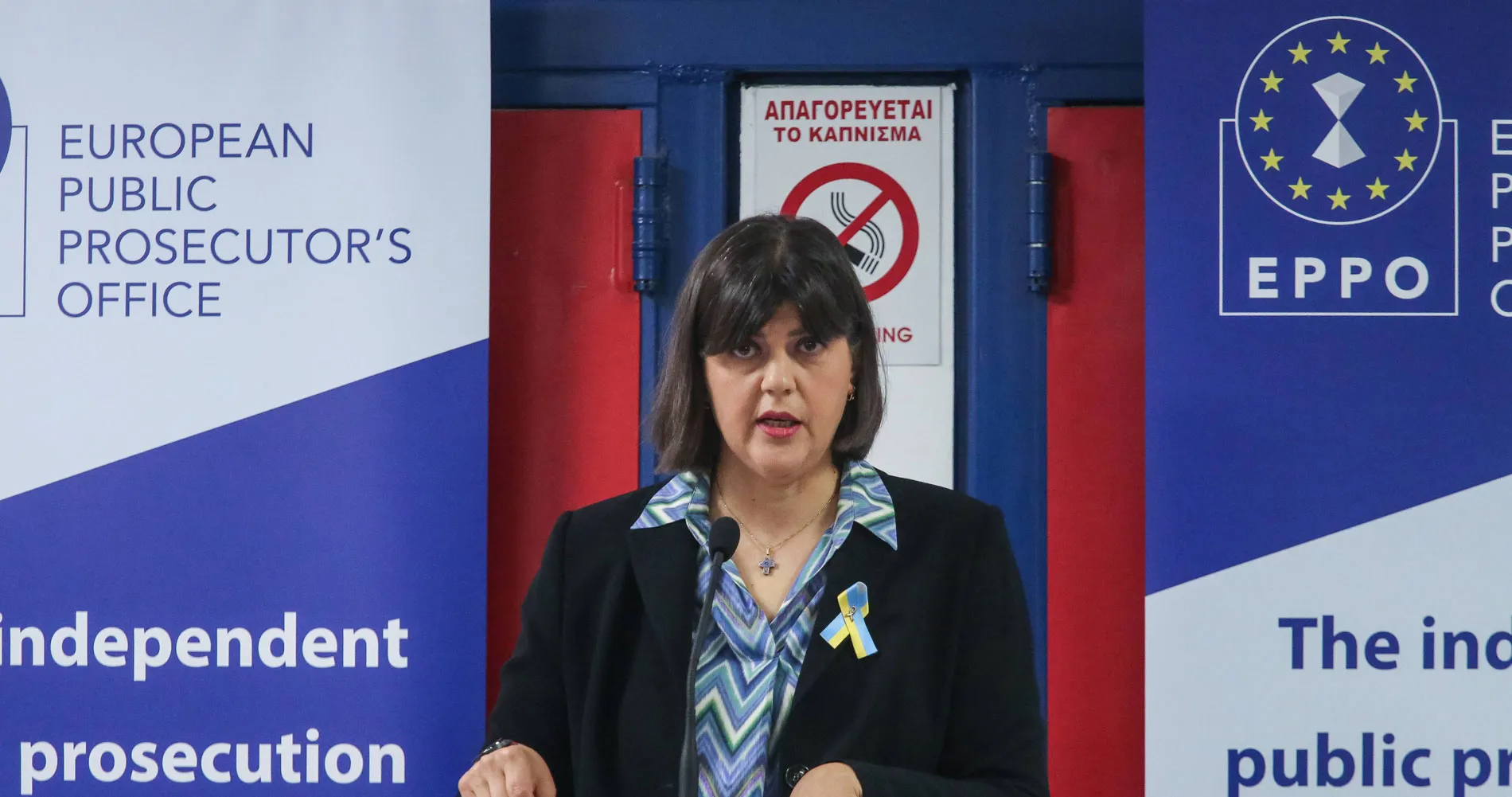Recent investigations have revealed that a leading German media organization, Axel Springer, in collaboration with Yad2, an Israeli property platform, has been profiting from the sale of homes in occupied Palestine. Legal challenges from Palestinians and Human Rights organizations have so far been dismissed by the German Federal Office for Economic Affairs and Export Control (BAFA). As Axel Springer prepares to part company with Yad2, will they avoid being held accountable for their actions?
David Deegan
8 July 2025
Chinese version
Axel Springer SE is one of Europe’s foremost media organizations. Founded in Germany in 1946 and headquartered in Berlin, the company publishes newspapers such as BILD and Die Welt, and operates a suite of digital platforms ranging from journalism to classifieds. In 2014, Axel Springer, through its subsidiary Coral Tell Ltd, entered Israel’s classifieds sector by acquiring Yad2.
Yad2 is Hebrew for “Second Hand” and is Israel’s leading platform for property listings, vehicles, and second‑hand goods. Calcalist, an Israeli economics and business website, reported early in 2025 that Yad2 had doubled in value since Axel Springer’s purchase, and is now valued at approximately USD 420 million.
In recent years media outlets and organizations such as the Business and Human Rights Resource Center (BHRRC) have revealed that Yad2 hosts thousands of listings for homes in Israeli settlements located in the occupied West Bank, territory internationally recognized as Palestinian, including private Palestinian land seized by the Israeli military. BHRRC is a non-profit human rights organisation that promotes corporate accountability and transparency by drawing attention to the social and environmental impacts of companies worldwide. In February 2024, The Intercept, a non-profit journalism organization, catalogued over 1,000 paid advertisements on Yad2 for properties in these settlements, meaning these listings were direct revenue sources for both Yad2 and its German parent Axel Springer, a practice widely regarded as illegal under international law.
According to The Intercept, some of the advertisements are for homes in so-called outposts, or settlements considered illegal under even Israeli law; other home listings appear on private Palestinian land that was seized by the Israeli military for security purposes but now hosts Jewish settlers. Palestinians cannot in practice buy or rent in Jewish-only settlements.
Following these revelations, in November 2024, a group of affected Palestinian landowners and villages, represented by the Jerusalem Legal Aid and Human Rights Center, lodged a formal complaint under Germany’s Corporate Due Diligence Act. The legal action, supported by Law for Palestine, the European Legal Support Center, and the Palestine Institute for Public Diplomacy, alleges that Axel Springer facilitated violations of human rights and property rights by listing homes on land unlawfully taken from Palestinians. The complainants argue that Axel Springer, as the ultimate owner of Yad2 (through Coral Tell Ltd), is obliged to exercise due diligence, as per German law, across all its subsidiaries including those overseas.
In early 2025, the German Federal Office for Economic Affairs and Export Control (BAFA) rejected the complaint under the due diligence law. BAFA cited jurisdictional limitations, arguing that Yad2’s operations take place under Israeli jurisdiction and therefore fall outside the scope of German regulatory enforcement.
Shortly afterwards the BHRRC reported an interview between Anadolu Ajansı, a Turkish news agency and the complainants’ lawyer, Robert Grabosch. Grabosch described BAFA’s decision as “blatant hypocrisy,” stating that the refusal sets a troubling precedent: German companies could escape liability for overseas human rights abuses simply by owning subsidiaries abroad. In the same report the BHRRC confirmed that internationally, the sale of homes in illegal settlements is widely recognized as contravening the Fourth Geneva Convention, Article 49, and cited a 2024 advisory opinion from the International Court of Justice which reaffirmed that such settlements are illegal and urged third-party states to cease economic support aiding their existence.
Axel Springer’s spokesperson asserted that all Yad2 listings comply with Israeli law. They emphasized its internal code of conduct, which prohibits discrimination and maintained that ultimate responsibility lies with Israeli legal frameworks and municipalities regarding settlement legality. The BHRRC reported that Axel Springer did not respond to questions about paid and unpaid advertising for settlement homes on Yad2.
Adding to the complexity of this sensitive situation, a further uncertain process is operating in parallel. In February 2025, Calcalist reported that Kohlberg Kravis Roberts & Co. (KKR), the American private-equity and investment company, along with other global backers, were conducting preparatory talks for acquiring Yad2. Although Yad2’s CEO stated no formal sale process had yet started, should Yad2 change hands to firms outside Axel Springer, critics warn that Axel Springer could then evade future legal scrutiny. Once divested, the company could claim no responsibility for Yad2’s policies or listings.
If Axel Springer retains ownership of Yad2, future allegations such as investigations that uncover more illegal listings may lead to renewed legal or reputational consequences. However, once Yad2 is sold, Axel Springer may argue it no longer controls or profits from the platform, ending legal accountability under German and international norms.
This controversy sits within broader debates on corporate responsibility in conflict zones. Germany’s Corporate Due Diligence Act (effective since January 2023) is one of Europe’s stringent measures for obliging companies to adhere to global human rights standards. BAFA’s rejection of the allegation against Axel Springer is viewed by critics as a setback that undercuts the law’s effectiveness.
Meanwhile, the United Nations Special Rapporteur on human rights in the occupied Palestinian territory warned in March 2025 that ongoing settlement expansion and dispossession of Palestinians represents not only a breach of international law but a “tragedy foretold” and a lasting stain on the international community’s conscience. These warnings reinforce calls for states and corporations alike to exercise heightened diligence and responsibility when engaging in markets tied to systemic human rights violations.
Germany has in the past demonstrated willingness to apply extraterritorial legal principles. On 3 June 2025 a German court sentenced a Syrian pro-Assad fighter to life imprisonment for war crimes committed in Syria, invoking the principle of universal jurisdiction. Universal jurisdiction is a legal doctrine that permits national courts to prosecute severe international crimes regardless of where they occurred or the nationality of the perpetrators or victims. German prosecutors have made use of universal jurisdiction laws to seek trials for several suspects believed to have committed atrocities during Syria’s civil war. If such principles apply to individual accountability for war crimes, there seems to be no reason corporate conduct contributing to human rights abuses abroad should escape similar scrutiny.
International law, including the Geneva Convention and UN resolutions, condemns settlement activities but enforcement remains inconsistent, and the role of transnational corporations in these activities is still evolving. Axel Springer’s ownership of Yad2 places it at the heart of a complex clash between profit-making and ethical responsibility. German courts have previously chosen to apply universal jurisdiction and hold people accountable for their actions. How German or international authorities decide to act in the next months may determine the future efficacy of corporate due diligence in holding global firms responsible for overseas operations.






















